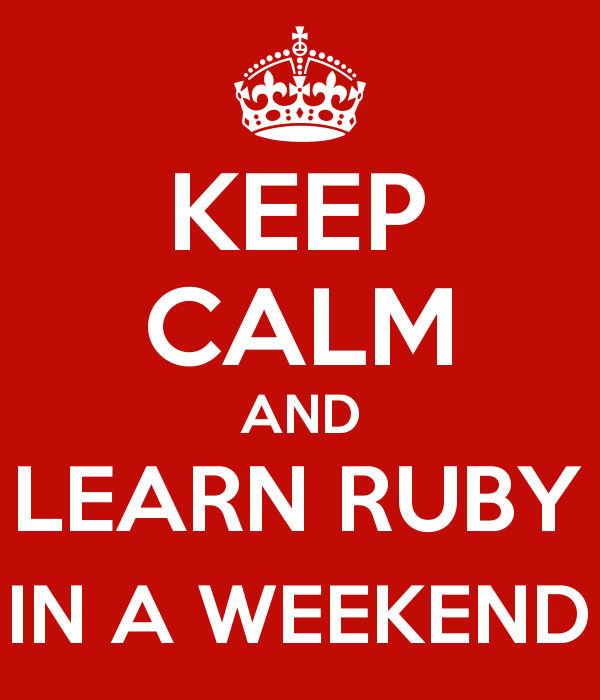
Recently, I had an entire weekend to prepare a lecture on Ruby; a programming language I knew nothing about. I want to share the strategy I followed with the steemit community: I slept the entire weekend!
Seriously though, here is what I did:
Material Over Method
In "The 4-Hour Chef" Tim Ferris explains that the sources you use to learn are, sometimes, more important than any method you use to study them.
Before I started me weekend-long Ruby marathon, I researched the best books and sources to learn Ruby.
Focus on the 80/20 rule
You might have heard about the Pareto principle - Also Known as the 80/20 principle - and how it can be used to improve learning. In summary, the Pareto principle says that "for many events, roughly 80% of the effects come from 20% of the causes".
If 80% of the learning will come from 20% of the sources, we should spend more time on the vital 20%. I divided my time between learning the basics of the language and learning the topic I had to explain. Everything else was secondary.
Attacking the problem from all sides
In the book "How To Learn Any Language: Quickly, Easily, Inexpensively, Enjoyably and on Your Own" Barry J. Farber explains a system he used to quickly learn a new language using a multipronged attack.
I tried to implement a similar system where I attacked the problem from more than one angle. I used the Pomodoro technique to study 20-minute slots that alternated between the following:
- Studying "Programming Ruby,The Pragmatic Programmer's Guide"
- Studying "The Well-Grounded Rubyist"
- Practicing what I had learned with real code using two different websites.
- Browsing online tutorials about Ruby
Since I was using 20-minute slots, and I was alternating between different activities, I could study for a long time whitout feeling fatige or boredom.
Also, I want to emphasize the practice sessions I had on my third Pomodoro. Reading all the books in the world will give you familiarity with a subject, but real mastery comes from practice what you have learn, as much as possible, and as often as possible.
In my next post, I'll show you the detailed resources and tools I used.
Vinicio
Nice, I like the concept of using time slots.
Thanks! It's very useful to avoid getting burned out.